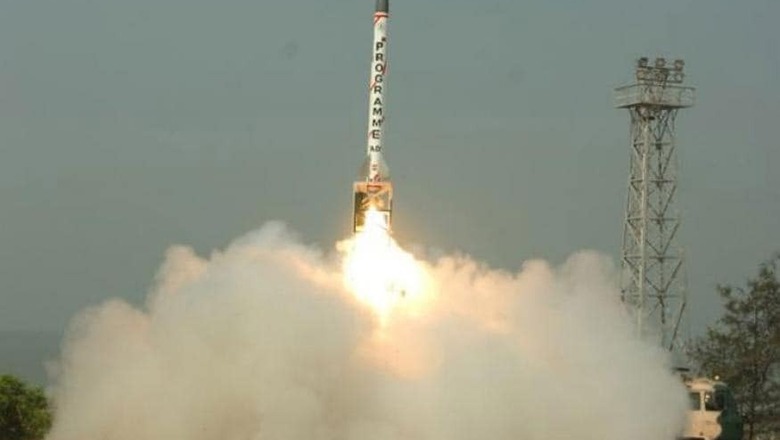
views
Washington: India is likely to enter the missile technology control regime this week, a move that will boost the country's efforts to purchase Predator drones from the US and export its high-tech missiles to friendly nations.
An announcement in this regard is anticipated as early as this week, possibly during Prime Minister Narendra Modi's visit to the US at the invitation of US President Barack Obama, sources tracking the development said.
The major breakthrough comes days after India announced that it is subscribing to 'The Hague Code of Conduct' against Ballistic Missile Proliferation, which is considered to be complementary to the missile technology control regime (MTCR). India, had applied for its membership in 2015.
But it was facing strong opposition from a few member countries of the MTCR where decisions are based on consensus.
The Obama administration has strongly backed India's membership into MTCR and three other export control regime -- Australia Group, Nuclear Suppliers Group and the Wassenaar Arrangement.
Established in April 1987, the voluntary MTCR aims to limit the spread of ballistic missiles and other unmanned delivery systems that could be used for chemical, biological, and nuclear attacks.
The MTCR regime urges its 34 members, which include most of the world's key missile manufacturers, to restrict their exports of missiles and related technologies capable of carrying a 500-kilogram payload at least 300 kilometers or delivering any type of weapon of mass destruction.
Since 2008 India has been one of the five countries that are Unilateral Adherents to MTCR.
After MTCR's announcement, India and the US are expected to fast-track their discussion on sale of predator series aircraft for the Indian military.
"Yes, General Atomics Aeronautical Systems Inc is aware of India's interest in Predator-series Remotely Piloted Aircraft (RPA)," Vivek Lall, chief executive of the US and International Strategic Development of 'General Atomics', the largest privately-held American defence company which designs and manufactures the world's famous Predator drones, said in December 2015.
Membership into MTCR is a huge boost for India's ability to procure this capability.
The next step would be for the unmanned aircraft policy of the White House to be amended for this strategic partnership.
The Predator drone, which recently eliminated the Taliban leader in Afghanistan, is the preferred tool of the CIA.
"The MTCR aims to prevent proliferation of unmanned delivery systems (missiles or unmanned aircraft) capable of delivering weapons of mass destruction, by seeking to coordinate national export licensing efforts," MTCR Chair, Ambassador Piet de Klerk, had said in his address to the 23rd Asian Export Control Seminar, Tokyo, in February.
"Whereas MTCR has common export policy guidelines applied to an integral list of controlled items, HCoC members commit themselves to notify others on launches and test flights of ballistic missile and space launch vehicles. States also commit to subscribe to principles that include submitting an annual declaration of their country's policies on ballistic missiles and space launch vehicles," Klerk said.




















Comments
0 comment